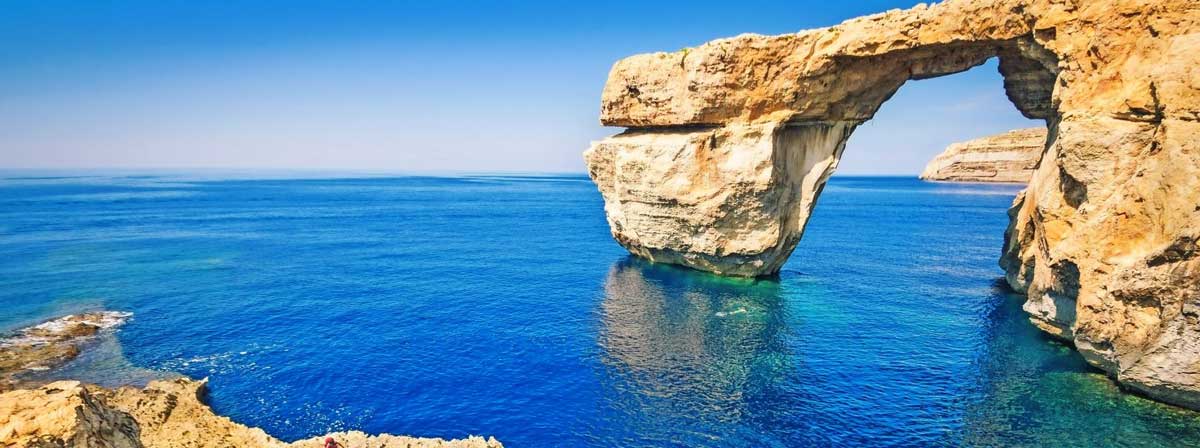
Planning on relocating to Malta? You might be wondering about some of the most important things for an expat to do after relocating. You have your suitcase packed, your flight booked, but you’ll still want to make a final check before moving to a whole new country, right?
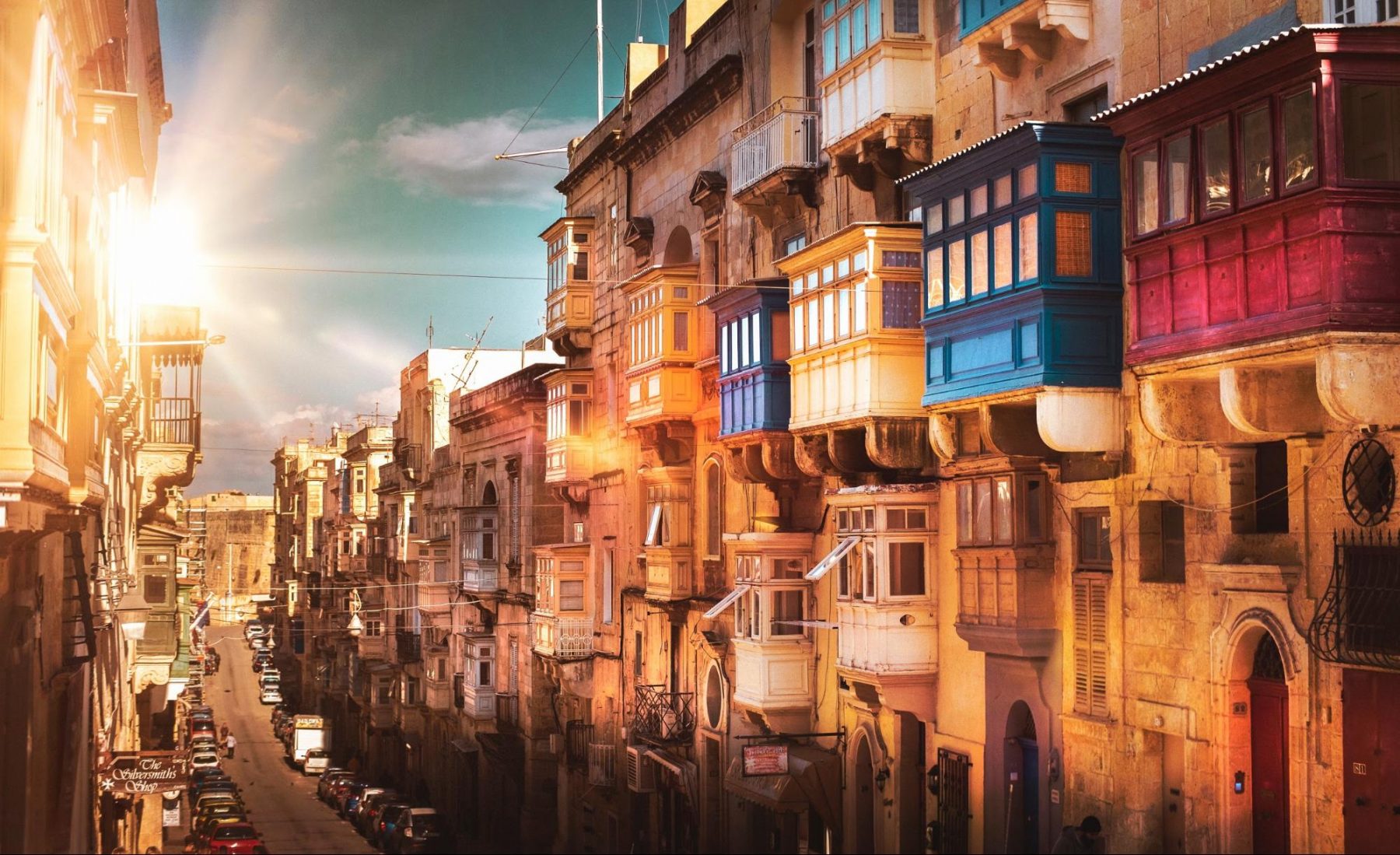
We know how you feel! Our goal is to provide all the necessary information to expats that plan to relocate to Malta. As we know that moving to a foreign country can be stressful and intimidating at times, it is crucial to understand what needs to be done before, and after landing at your new destination. By setting all the arrangements in place and getting to know the system of a certain country a little better, you can save a tremendous amount of time and hassle, and can freely enjoy all the steps of our adventure.
Being an expat myself, and living here for more than 5 years, I’ll share all my experiences in a realistic and honest manner. Are you ready to become an expert of Malta? Just keep on reading.
Malta, or more officially, the Republic of Malta is the 10th smallest country on the planet, with a territory of just 316 km². It lies 80km south of Sicily and 284km North of Tunisia, forming a link between Europe and Africa. The Maltese archipelago consists of three islands: Malta (the mainland), Gozo (the sister island) and Comino (a tiny little paradise between the other two islands). The population is slightly above 440 000, which makes it the 8th most densely populated country in the world. The official currency is the euro, although until 2008 it was the Maltese lira.
Valletta is the capital with its high-laying gardens and amusing historical sites. Unlike many other countries in Europe, there are plenty of areas besides Valletta that are just as colourful, busy, and vibrant as the capital itself. The official languages are Maltese and English. You will hardly find a person who speaks no English at all. Still, it’s important to keep in mind that the Maltese language is widely used among locals, but they generally switch to English when they realize that there is a foreigner in the discussion.
Over 90% of the population is catholic, which can explain the curious fact that Malta has a church for every day of the year. No kidding. You will find 46 churches on Gozo, and no less than 313 on the mainland, meaning that if you wanted to visit a different church every single day for a year – nothing would stop you!

The best way to get a feel for the various religious events is by visiting some of the ‘festas’. Shortly after moving here you’ll find that these feasts take place through all the Island, especially in the summer months. Each and every Maltese village has its own patron saint, paired up with a special date when all areas of the village celebrate them. These events can be any length between only one day to a whole week. For the same reason, especially in the summer, hundreds of fireworks get launched every week as a festive way to celebrate their saints. Another must-see event is the carnival, which is held in several Maltese towns, but the most beautiful of them is unquestionably the one they hold in Valletta.
Maltese people can seem loud at times, which might make you think that they are constantly arguing. Still, whoever knows the Mediterranean nations will see that it’s just the way they speak. Loud and enthusiastic with plenty of gestures along with their chats.
If there is one thing that was shocking for me in the first days it was definitely the huge amount of garbage left on the street. Unlike in many countries in Europe, the houses do not have large rubbish bins in front of the main doors. Instead, everyone leaves their rubbish bags in front of their place, which gets collected in the morning hours.
In the last two decades, individuals from all kinds of nations have settled here, making Malta an extremely multicultural destination.
The dining traditions follow a typical Mediterranian style. A huge abundance of fresh seafood, tomatoes, excellent quality of olive oil, and of course – pasta. The hungry workers with little time are commonly stopping by at the Pastizzerias, where you can get a quick snack for generally less than two euros. One of the most iconic Maltese specialities of these flaky pasta munchies is the pastizzi. It’s a crispy pastry, filled with either ricotta, mushrooms or chicken. It’s a perfect and cheap way to kill your hunger for 30 cents, but eating these every day will definitely give you some unwanted extra kilograms.
Anyone who intends to live in Malta has to choose between two types of residency: ordinary and permanent. The ordinary residency is available to EU/EEA Nationals. The ones that opt for ordinary residency will find a tax rate of 0-35% of their income, minus any tax credits. The amount of tax you’ll have to pay depends on your marital status and your annual income. The ordinary residence permit must be renewed every five years.
Permanent residence can be used by anyone who moves to Malta, regardless of nationality. Anyone arriving from a third country nation has to apply for a permanent residence permit. This type of residency sets a flat tax rate of 15%.
If you want to learn more about the application procedure, you can check this page, while you can find a whole bunch of useful forms, ready to download, right here.
Well, that depends on the country you’re coming from. Nationals of any non-EU countries must apply for a visa before arriving at Malta, regardless of the length of their stay.
EU Nationals are allowed to stay in Malta for as long as they wish after they register with the local authorities in the first 90 days of their stay.
Australian, Canadian and US nationals are generally allowed to stay a maximum of 90 days in a 180-day period anywhere within the Schengen Area. If they come to Malta for less than 90 days, they do not need to obtain a visa.
EU citizens do not need to apply for work permits in Malta as a residence permit is going to be issued based on their application filed through the immigration authorities. Citizens from outside the EU with a short-stay visa will have to register as job-seeker if they intend to live and work on the Maltese islands.
The registration has to be done with the Employment and Training Corporation – ETC – operated by Jobsplus. This website provides answers for all kinds of questions you might have about work permits and employment. However, registering as a job-seeker will not grant you a job yet. Before they employ any foreigner, the company first has to demonstrate that they have not found any Maltese citizen who could fill the position.
You can search for jobs on Jobs In Malta, Keep Me Posted, and Maltapark. I’d recommend starting applying for jobs even before your arrival, as the procedure can take several days or weeks. It’s good to have a few interview appointments set already before you actually set foot on the island.
If you plan to move here for a long time, you should know that any foreign citizen with the intention of working in Malta for more than 3 months is required to apply for an e-residence card, in other words, a Maltese employment license.
In 2018, the Maltese government took steps to simplify the work permit procedure. The processing time of the employment license application has been reduced, but a temporary work permit is issued during this time, so you can start working legally before the final documents get released.
The documents required for registration are:
The NI number is also referred to as the Social Security Number of an individual. Every single employee or self-employed/occupied person requires a social security number. When you move to Malta you must apply for this, as it gives you the right to work here.
You can learn more about the NI number here, or just simply opt for the application using this form.
If you decide to apply for a Maltese ID card, you’ll need to go to Valletta, directly to the Evans Building at St. Elmo Place, where you can get your ID free of charge.
The documents needed are:
The islands are relatively cheap compared to other European countries, which is understandable considering that the minimum wage is 757 euros per month. It all depends on the area though. In cities like Sliema and Valletta, a one-bedroom apartment can be easily over 1000 euros per month, however, if you go to less popular areas like the North, the South, the Center or Gozo, you can quickly find two or even three bedroom apartments for the same price. When moving to Malta on a budget you’ll do best to avoid crowded city centres and try and find accommodation in less popular areas.
The same goes for entertainment, shopping, and food. Eating out in touristy areas can cost from 25 to 150 euros per person. While going a bit further from the buzz can lower this amount to 15-40 euros for one. Drinks are insanely cheap. Anything non-alcoholic comes for around 1.50-3 euros, while a beer will be approximately 2.50-5, and even the fanciest cocktails will cost a maximum of 7 to 10 euros.
Malta has been protecting the local market quite successfully. Still, the cheapest option for your monthly shopping is Lidl or Scotts, where you can cover your needs for several weeks for no more than 200-250 euros.
The Harbour Cities – Sliema, San Julians, Gzira and some of the surrounding villages. These areas are extremely popular among expats. In these zones, you’ll find all kinds of options for leisure, nightlife, dining, entertainment, and a vivid, cosmopolitan atmosphere. Prices here are high, but on the other hand, you’ll find many kinds of amenities, paired with shopping malls, supermarkets and all the features a decent city should present. Also, in San Julians – more precisely in Paceville – you’ll find the best bars, clubs, and discos, which makes it the starting point for the all-night-long Maltese parties.

Valletta – The capital has rather high prices, which can be worth it when you take into account the historical buildings at every corner and the rich cultural events and attractions on offer.
The Central Zone – Meaning the geographical centre of the mainland, with villages like Birkirkara, Naxxar, Fgura, Mosta and others.
The South – The southern villages include Marsaxlokk, Marsaskala, and Birzebbuga. These are commonly referred to as the fishing villages and are the location to find some of the best places to try exceptional seafood dishes.
The North – The second most popular choice for expats, being just above the central area. Villages like Qawra, Bugibba, and the San Paul’s Bay can be found here, with a large number of tourists but definitely lower prices compared to Valletta, Sliema or San Julians.
Gozo – The sister island with magical rural sites and some of the best beaches of the whole archipelago. Gozo offers a more slow-paced life, and it’s a highly favoured destination for pensioners relocating to Malta. On the downside, however, some can find it harder to find jobs in Gozo than they do in the mainland. But the views are truly moving.

No matter which part of the country you choose to be your next home, you will need to sleep somewhere. As the property market is booming faster than ever, a large variety of accommodation will be offered for letting and buying purposes. If you want to get a deal directly with an owner, I would recommend taking a visit to Maltapark, where you’ll not only be able to check a huge database of available properties, but you can also search for literally anything that can fall into a buy-sell website. However, if you’d rather hire a professional to get the keys to your new home as soon as you can, there are numerous real estate agencies to choose from, such as Zanzi Homes, Quicklets, Remax and many others. Before you contact agencies, prepare the answers for the following questions:
Short term indicates everything from a single day to six months, and these tend to be more expensive than the long-term options. Long term is anything from 6 months to several years. It’s quite rare to sign contracts for several years when we speak of rentals. Still, when the owners are satisfied with the tenants, they are usually open to renewing your contract.
Property prices can depend on the number of rooms, modernity and most importantly – location. The closer you are to the buzzing nightlife and modern areas, the higher the prices will go. When calculating your budget, keep these factors in mind: bills cost from 50 to 75 euros per month. The owner might also ask for an additional amount of 20-25 euros for the maintenance of the common areas. Finally, when you get to the point of successfully creating a letting agreement, you’ll be expected to pay one month’s rent in advance, plus the deposit, which is equal to the monthly rental fee. If you hire a property agent, you’ll have to add an additional 50% of the monthly rental fee which goes directly to the agent.
Example: You find your dream home with a rental fee of 800 Euros.
Before you can start to fill the flat up with your boxes, you’ll need to leave 800 euros (the monthly fee in advance), plus 800 Euros (the deposit), plus 400 Euros (the agency fee).
It’s critical that you have an answer for this, otherwise no one will be able to help you.
In Malta, most apartments have 1-3 bedrooms. It is not impossible to find a place with more individual rooms, but that’s definitely not so typical here unless you chose a villa or a house.
Apartment, maisonette, penthouse, villa, farmhouse, studio, terraced house. You name it, they’ll show it.
Even though dogs can be seen wherever you turn your head, sometimes it can turn out to be difficult to find a place where your furry friend will be allowed to move in with you.
Sometimes owners want to know what nationalities the potential tenant candidates are. Not because they are racist, but simply because there are different people everywhere, and some tenants can give owners a real hard time at times. To avoid these situations and protect the conditions of their property, owners can ask you what country you are coming from. Don’t take it personally, they mean no offense.

Useful advice: if you don’t like the sunshine, and can’t bear the heat, moving to Malta might be a challenge for you. On the other hand, if you don’t mind wearing your flip-flops for 8 months and would love to enjoy an average of 300 sunny days per year, you’ll be happy as a clam here. The coldest month is January, while the hottest one is August. The annual Maltese weather average is 23°C, making the country one of the warmest places in Europe. Quite a paradise, right?
Well, not so fast. When I moved here, this information did a great job of making me believe that I wouldn’t need a coat here. 300 days of sunshine? Is it even possible to feel cold here? Yes, it is. And the reason: humidity. Humidity is the reason why the weather forecast sites display not only the daytime and nighttime temperature but also a special temperature factor that runs under the name “it feels like”. This means that even though the temperature is 33 degrees, you’ll feel like it’s 37. While in winter, most people will feel cold when it’s 10 degrees outside, but it actually feels more like 7.
One has to keep this in mind when preparing to move here. Central heating has no history in Malta, and unless you have an AC or other electric heaters that can provide you with some heat, you’ll need to get some warmer clothes for the winter months. The other not so pleasant feature of the winter months is the wind. I’m not speaking about the refreshing breeze that you will enjoy while sunbathing, I mean the wind that smashes the doors open, breaks the umbrellas, and can at times be moving at the speed of 50 to 60 km/h. Don’t worry, you won’t get a free flight walking on the street, but a decent wind-jacket can work miracles.

To summarize the weather in Malta, we could say that while it has a relatively mild winter, July and August can definitely be challenging to those that are not used to living in 30-38°C. Personally, I love months like April, May, September, and October the most.
As we get to the end of this guide, we wish expats the best of luck and hope you have a great time when you relocate to Malta in the future!
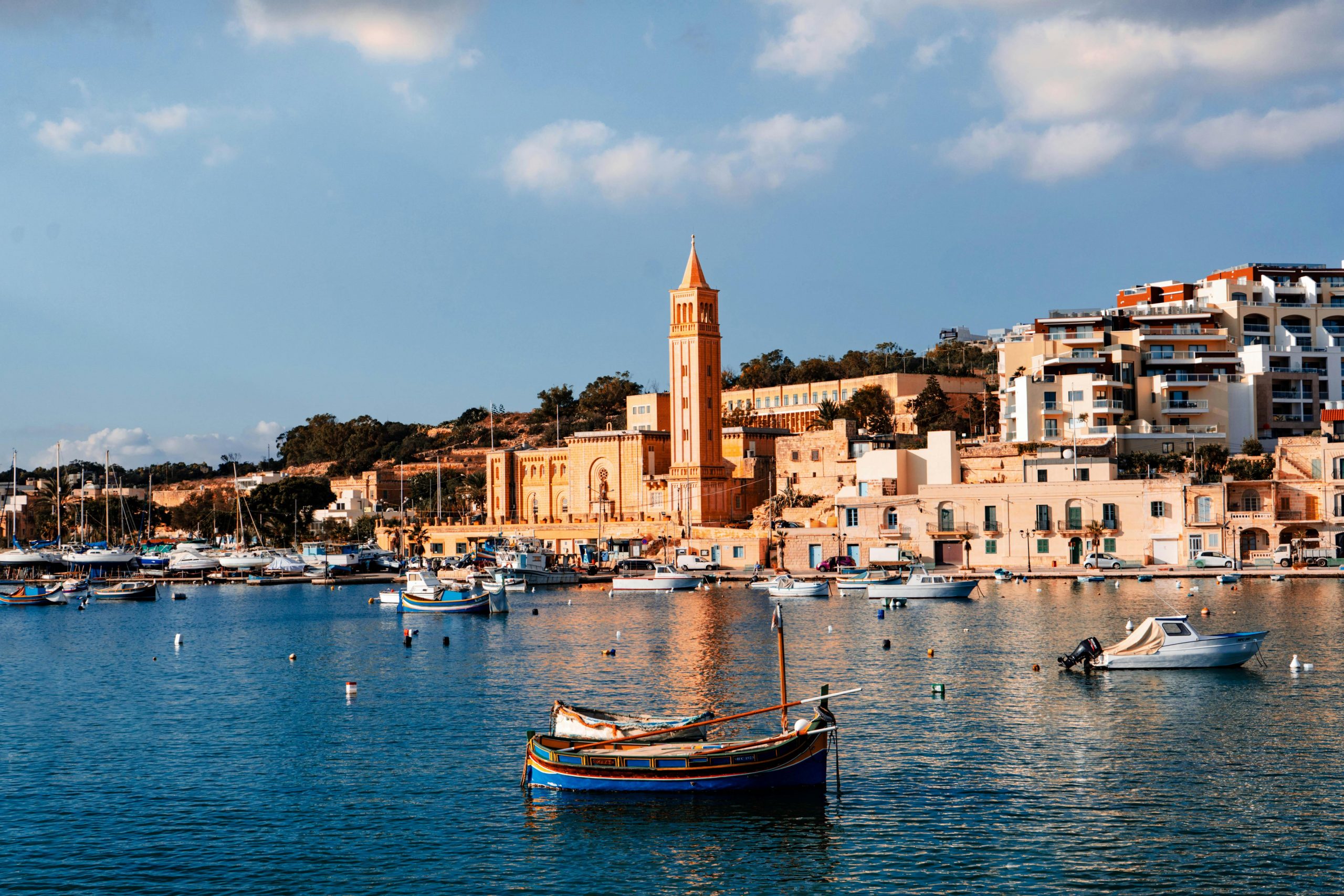 How Much Does It Cost to Move to Malta?
How Much Does It Cost to Move to Malta?How Much Does It Cost to Move to Malta? Moving to Malta can be fascinating, but understanding the…
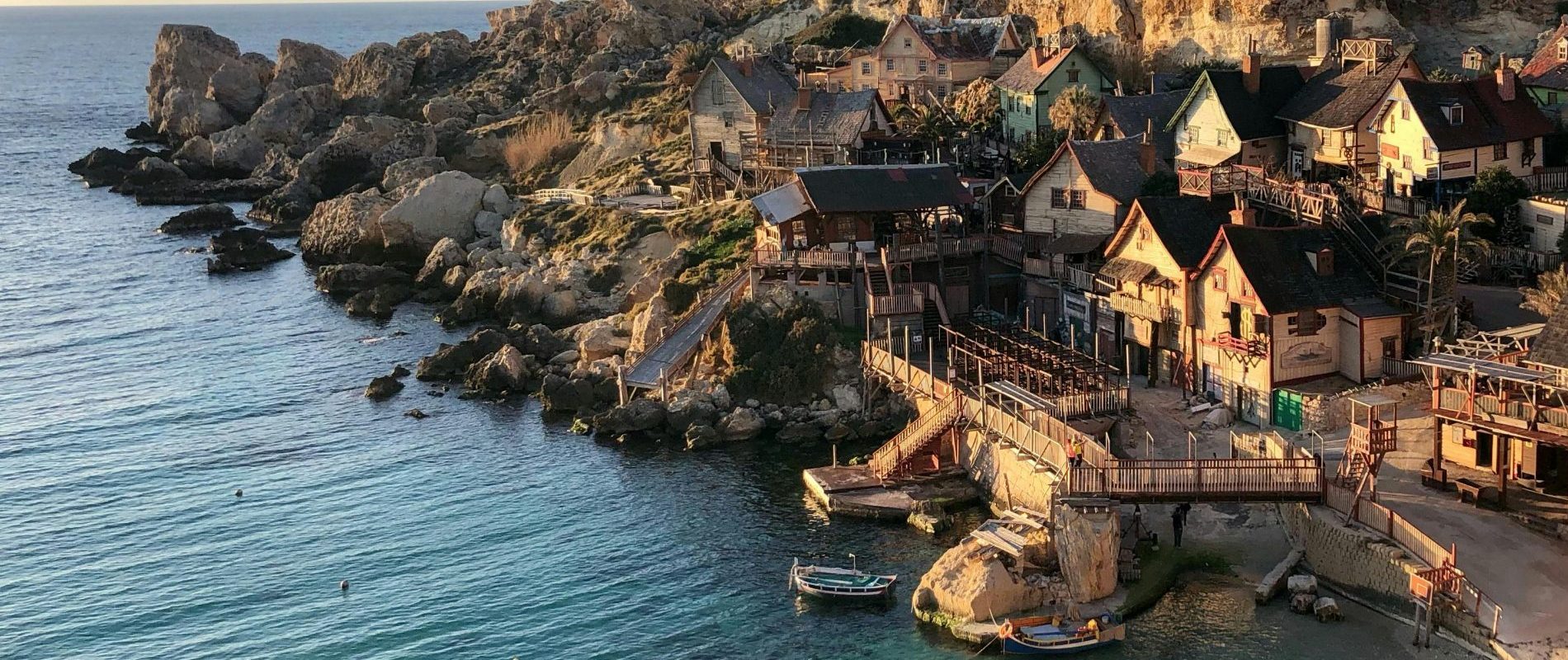 What Are the Disadvantages of Moving to Malta?
What Are the Disadvantages of Moving to Malta?What Are the Disadvantages of Moving to Malta? Malta is a small island nation in the Mediterranean, steeped…
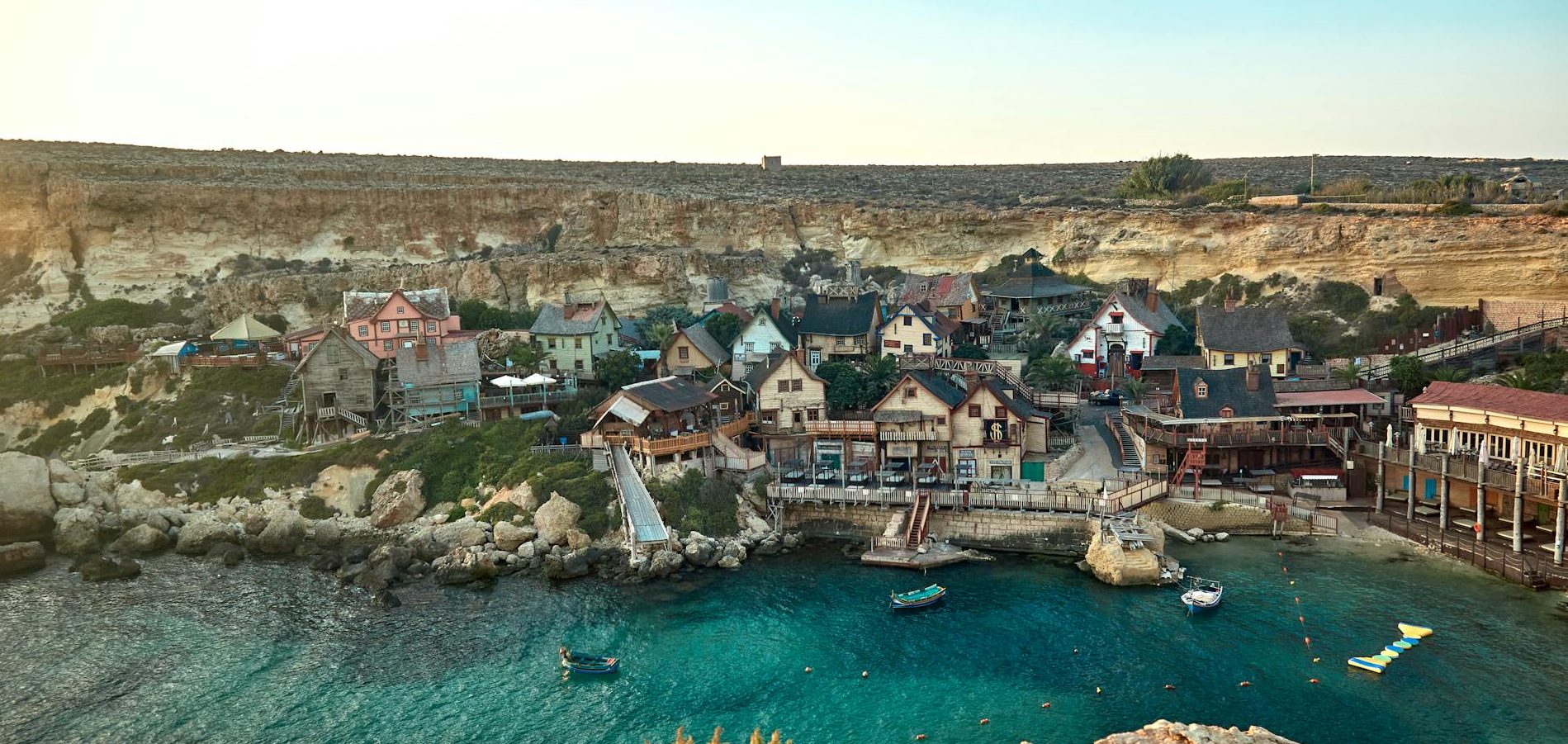 Is Malta a Good Country to Relocate To?
Is Malta a Good Country to Relocate To?Is Malta a Good Country to Relocate To? The place where the sun marks its presence for most…
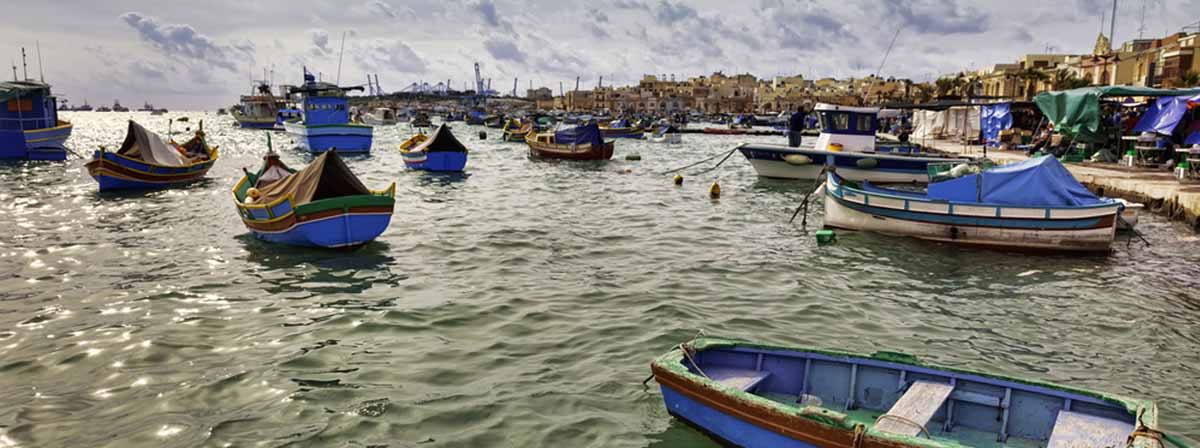 Transportation in Malta
Transportation in MaltaDriving A taxi driver once explained Maltese driving in a nutshell to me. He…